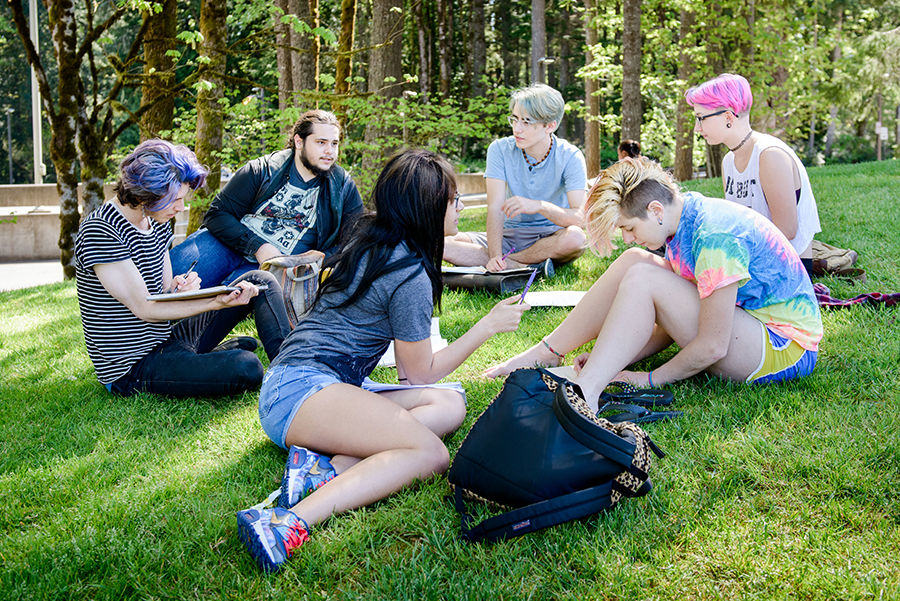About Gender, Sexuality, and Queer Studies
How have our expectations about gender and sexuality been shaped by historical, social, scientific, artistic, and cultural contexts across time and place? How does that heritage influence the way we experience gender and sexuality today? How can we have agency in reshaping expectations about how gender and sexuality can be represented and lived? Answer these questions and so much more.
This major academic area emerged in the 1970s and 1980s and a wide range of disciplines contribute to investigating the importance of gender and sexuality to identity and society. People of color have been central to the development of gender and sexuality studies and its intersections with issues of race and nation. Scholars and activists looking at economic class, religion, disability, transgender identity, and beyond have further expanded the boundaries of this field.
You will study this field in programs and courses related to other topics like:
- History
- Literature
- Media
- Art
- Creative writing
- Psychology
- Sociology
- Health
- Education
- Latinx and Latin American studies
- Native and indigenous studies
- Food justice
- Political economy
- Environmental studies
- Biology
The study of contemporary queer and transgender cultures is particularly strong in creative writing, literature, and media classes.
Check out related Courses and Programs in the Academic Catalog
